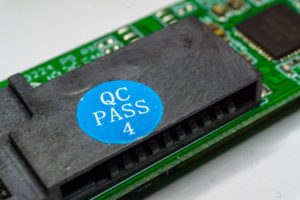Tampa Manufacturer Defects Lawyer
While many manufacturer defects do not pose a serious risk to consumers, there are several instances where someone may be injured or killed due to a manufacturing defect. Some of the most common injuries that result from manufacturer defects are with medical devices, auto parts, and children’s toys.
What is a manufacturer defect?
A manufacturer defect is any attribute of a product that prevents its proper use for the intended purpose for which it was designed and produced. There are many different defects, each unique in nature, that can arise in any type of product at any stage of production. Common examples of defects include: overcharging, undercharging, burns, leaks, breaks, damaged seals or screws, worn parts, broken components, defects due to misuse, etc. In Florida, all manufacturers must establish and prove to a consumer that the product they sell is safe to use.

A Florida manufacturer who makes and sells products must prove that the product meets the minimum safety standard required by law. One example of this would be a child’s stroller with a three-point harness that provides adequate restraint and comfort to the child and does not allow the child to unbuckle the restraint.
Another example would be a child’s car seat that should be secured to the child’s seat anchors the car while the vehicle is in motion. Another example would be child gates should close in a secure manner and not be able to be opened by a young child. For all other safety devices, they must meet the manufacturer’s minimum safety standards.
How Can a Florida Manufacturer be held Liable for Defects?
A Florida manufacturer who fails to comply with the law can be held liable for monetary damages. This means that if you or someone else has a problem with one of the manufacturer’s products, you may be able to seek compensation from them for personal injury or property damage. An experienced personal injury attorney should be consulted to determine whether or not your case has a strong possibility of winning the case. The attorney will help you explore all possible avenues to increase your chances of success and will also advise you on the steps you need to take to ensure maximum protection.
Why do Some Products have Warning Labels?
Florida state law requires manufacturers to provide warning labels about potential defects in their products. These warning labels are called” Warning labels,” “Caution labels,” or “hibitors,” “warnings,” or “dangers.” Each of these terms has a different meaning under the laws of Florida, and the court may issue a ruling in favor of a plaintiff based upon the type of negligence on the part of the manufacturer if the manufacturer fails to provide adequate warning labels. If the court concludes that there was negligence on the part of the manufacturer, the court may order the recalled product to be removed from sale and any other appropriate remedy awarded.
How Can Liability be Determined for Manufacturer’s Defects?
Florida Manufacturers must make every reasonable effort to correct any defect that they introduce into their products. Any manufacturing error that results in a defect in a product must be determined to still be safe for a consumer to use. Some things a manufacturer may consider are:
- Whether or not the product was or should be released for sale.
- What type of consumer product is it intended for (i.e. children).
- Who the manufacturer is.
- What instructions were included with the product when it was sold.
These are all important factors that will determine whether or not a manufacturer’s liability can be established. If a manufacturer does not engage in any activity that would have caused the development of the defect and continues to sell the product to know of the defect, they are ultimately responsible for their own negligence. A manufacturer’s duty to act includes an obligation to act with knowledge that a product is defective. If a manufacturer’s good faith has been breached, it is likely the manufacturer will face liability for their conduct.
What is the Manufacturer Defect Process in Florida?
Florida courts follow a strict process in determining what a manufacturer defect is. First, the state attorney must determine whether the facts support a finding of negligence. If the state attorney is unable to find that negligence was involved, the case should be dismissed for lack of subject matter jurisdiction.
Once the state has determined that there is negligence, the trial will move forward. During the trial, the court will listen to all parties, conduct its own investigation, and issue a decision. A jury will decide whether or not the manufacturer’s act was negligent. In Florida, a defective product is one that causes harm or danger to the user or consumer. If the jury finds that the manufacturer did not act reasonably in the wake of knowledge of the defect, then the plaintiff will receive compensation.
Do I Need an Attorney to Prove a Manufacturer Defect?
Yes. Proving a manufacturer willfully released a defective and dangerous product requires an experienced manufacturer defect attorney. If you or a loved one has been injured by a defective product, we want to help.
We will fight for your rights and get the compensation you deserve. At Darrigo & Diaz, we have more than 200 collective years of legal experience. Let us use it to help you. We aren’t afraid to take your case to court, and we can help you create an effective strategy for your claim or lawsuit. To learn more about your options, contact our firm by calling (813) 774-3341 and ask about our free case evaluations.
